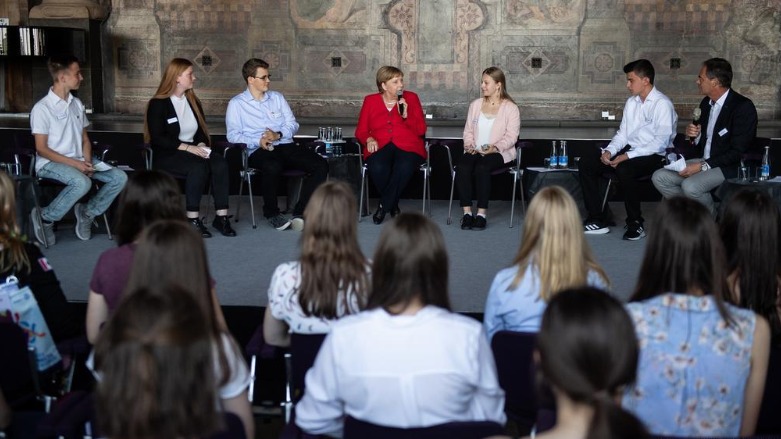Germany’s Merkel: Kurds in Iraq must have 'fair conditions'

Kurds in Iraq should have "fair conditions" and as much autonomy "as possible," German Chancellor Angela Merkel said on Wednesday.
Her comments came during a visit to a local school in Lower Saxony's town of Goslar, where she met with a group of students.
Merkel stated that she opposes the creation of an independent Kurdish state, though, and supports the “territorial integrity of Iraq,” claiming it contributes to Middle Eastern stability, Germany’s Deutsche Welle reported.
“I do not think a Kurdish state would serve peace in the region,” she said.
It is the first time that the senior German official has publicly expressed her opposition to the establishment of an independent Kurdish state.
However, she expressed her support for as much autonomy "as possible" for the Kurds, adding that they "must have fair conditions.”
Kurds are considered the largest stateless ethnic group in the world with a population of over 40 million people. Around two million Kurds now live in Europe, roughly half of which are in Germany.
In September 2017, the autonomous Kurdistan Region held a historic referendum on independence, with 93 percent of those who voted favoring secession from Iraq.
Iraq, along with Turkey, Iran, and Syria, strongly opposed the vote as each of them has millions of Kurds in their own countries and feared any such move in Iraq would inspire Kurds elsewhere to demand statehood.
Before the referendum, senior Kurdish leaders in the Kurdistan Region stated that their people are treated as second-class citizens in Iraq and that the poll would be a peaceful means to show the world their true intentions, rather than declaring an immediate breakaway from Iraq.
They also stated that they would use the result of the referendum as leverage against Baghdad to help secure the constitutional rights of Iraqi Kurds.
Since 2014, the Kurdistan Region, with its Peshmerga fighters and other security forces, has played a key role in defeating the Islamic State with the support of the US-led coalition.
Editing by John J. Catherine